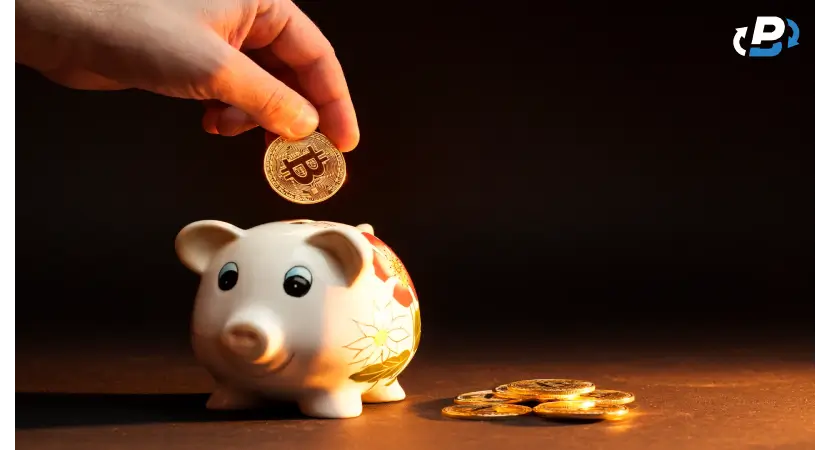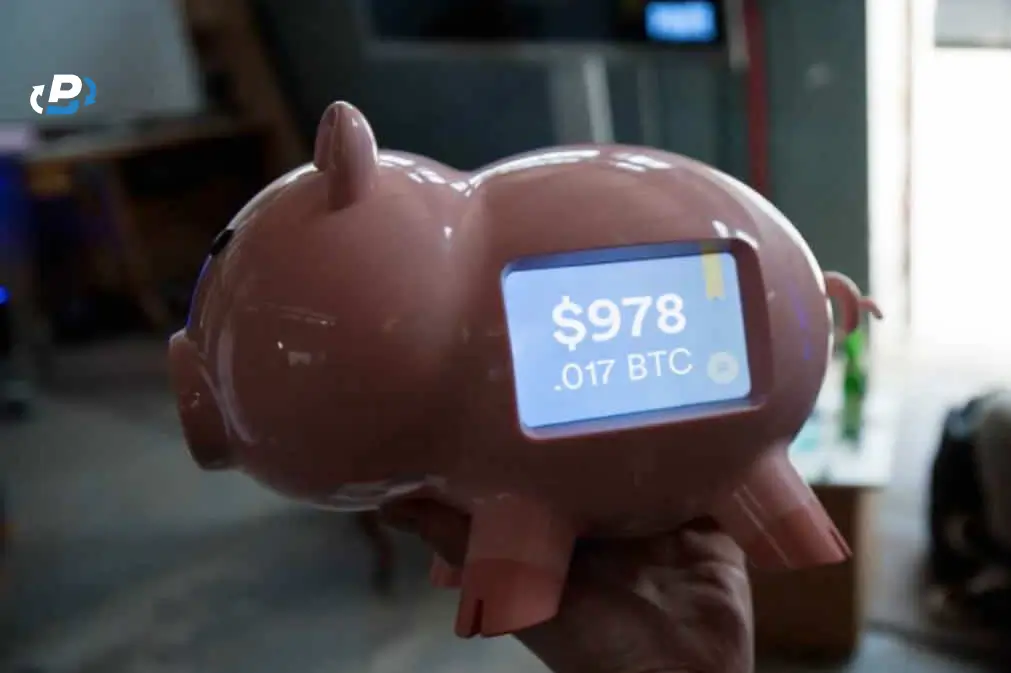Along with opportunities, the world of cryptocurrencies presents numerous pitfalls and dangers. One of the most dangerous is the pig butchering scam.
But what is pig butchering in crypto? In this type of scam, a scammer pretends to be a beautiful and sweet girl, seeks out an emotionally weak and unstable person, and establishes a trusting relationship, prompting the other person to fall in love with her. After gaining trust, the scammer convinces the poor victim to invest in cryptocurrency, but once the scammer receives the amount of money, he vanishes into thin air. Often, scammers do not act maliciously. In some unpleasant places, such as Myanmar's KK park, some criminal groups traffic humans and force them to perpetuate online crimes and scams, confined inside a ghetto neighborhood, threatened and tortured.
Unfortunately, this is also part of the cryptocurrency world, and PlasBit is on the front lines to combat these crimes. As much as possible, with our educational articles, we will continue to inform people and help them recognize all the red flags that can land you in a scam, helping you make wise and informed decisions. Now, let's better understand how this type of scam works.
How Pig Butchering Scam Works
What is pig butchering in crypto? The name of this scam comes from the concept that pigs are fattened up before being taken to slaughter. Similarly, sadly, scammers try to perpetuate the scam as long as possible to "get fat" on the unsuspecting victim's money and squeeze every last penny out of them. Rude as it is, this metaphor clearly makes the seriousness of this kind of scam clear.
But how much money do scammers get from these frauds? Although it may sound absurd, in some prison camps, such as in KK Park in China, groups of 10 to 15 people are forced to work in teams to perpetuate online scams and scams. The daily goal of the criminal leaders is to get at least $25,000 each day from each group of people. Considering that there are about 20,000 scam workers forced into KK Park, we can understand that the criminal leaders of these organizations make a huge profit on the backs of poor prisoners.
Moreover, in these concentration prisons for scam workers, criminal groups go to great lengths to create fake exchanges in order to make scam victims perceive that they are investing in a safe and reliable platform. With deeper analysis, however, it becomes clear that these are just fake exchanges which have the sole purpose of manipulating people into believing that their investment is safe and growing.
The Genesis of The Scam
This kind of scam is rooted in people's ignorance about blockchain and technology, human greed, and fragile people's emotional weakness. The perfect target for scammers, in fact, are people who have recently ended a love relationship or who are particularly lonely and sad. They strategically identify people who need to talk and vent and slowly and patiently win their trust in a manipulative and cunning manner.
From the outside, the scam might seem obvious: someone who wants to approach you, and then offers dubious investments in cryptocurrencies. Nevertheless, recognising this scam yourself, especially if you are going through a difficult time, is not easy. It is good to receive empathy, comfort and understanding, and scammers know this well in order to appeal to people's emotions and win their unconditional trust.
What Are The Promises to Victims?
The victims are initially promised nothing. The relationship that arises seems genuine and loving, with understanding and empathy. Once the victim becomes attached to and often falls in love with the scammer, the second part of the evil plan comes into play.
After getting to know each other and talking for days or even weeks, the scammer proceeds with his plan. Having realized that the victim probably needs money to improve his life, he then starts mentioning investments in cryptocurrencies and shows his profits. The victim naively believes the scammer and astounded by the possibility of making a significant profit from cryptocurrency investments, becomes interested and asks the scammer for more information. At this moment, the scammer covertly proposes to the victim to also start investing in crypto.
Fraud and Disillusionment
After getting the victim interested in the world of cryptocurrencies, the scammer sets himself up as a guide in the world of Web3 and offers to help the victim invest. The victim naively trusts the scammer and starts sending him money to invest.
Although the scam may already end with the first sending of money, this is not the end of the story. In fact, what makes this scam truly despicable is the prolonged teasing of the victim. The scammer periodically sends financial reports, showing that investments are going well and that the victim is making money. This triggers a confirmation mechanism in the victim's mind, who trusts the scammer progressively more and more and sees him as a lifeline. Hence, he periodically sends money to invest, hoping to make big money. After a while, when the scammer realizes that the victim has no more money to invest, he decides to end the charade. So, after receiving numerous money transfers from the victim and showing him fake earnings, he disappears into thin air and will never answer the victim again.
The Consequences of the Scam
The consequences of this scam are devastating for investors who fall prey to it. Many of them lose significant sums of money, often their life savings, and are left with no recourse to recover their investment. The financial impact of the scam on individuals and families can be catastrophic, leading to bankruptcy, debt, and financial ruin.
Moreover, the pig butchering scam has a wider impact on the cryptocurrency sector as a whole. It damages confidence in the sector, causing fear and distrust among potential investors. The negative image of cryptocurrencies as a vehicle for fraud and Ponzi schemes is reinforced, making it harder for legitimate businesses and investors to operate in the sector. This, in turn, slows down the growth and development of the sector, making it less attractive to investors and impeding its progress towards mainstream adoption.
Fighting the Scam
Regulatory authorities and law enforcement organizations are taking more extensive measures to thwart the pig butchering scam and other types of cryptocurrency-related fraud. Nevertheless, cryptocurrencies' decentralized and pseudonymous nature makes it challenging to pursue scammers and recover stolen funds. It is recommended that investors exercise extreme caution and deepen their understanding of cryptocurrencies and investment practices before committing their funds. Only through education and awareness can individuals shield themselves and the community from the dangers of the pig butchering scam and other fraudulent schemes.
What is Pig Butchering in Crypto? What about the KK Park?
As explained, pig butchering in crypto is a horrible scam that manipulates and robs money from unsuspicious and vulnerable victims. This kind of scam is usually done by scam workers forced to make online scams in sad city prisons. For example, KK Park is a prison complex that was built in 2021 and is gradually being expanded to include more prison camps in 2024. After the start of the COVID-19 pandemic, in fact, many people found themselves physically and emotionally alone, forced to stay indoors due to the various lockdowns and restrictions. This, unfortunately, was the perfect period for the advent of this type of cyber attack. So, these prison camps for scam workers came into being exactly for the purpose of becoming a world center of scams and crimes. It seems hard to believe that in 2024, this kind of human trafficking still exists, but unfortunately, this is the reality, as also confirmed by investigations and authoritative sources.
Who is Behind the Pig Butchering Scams?
Deep within some cities of Asia lies a dark reality: the human trafficking cartels. These criminal organizations operate in the shadows, exploiting the vulnerable and orchestrating large-scale operations that extend far beyond national borders, often using technology to facilitate their nefarious activities. Human trafficking cartels are led by individuals devoid of morals, aiming to profit from the vulnerability and naivety of others. These "moguls" of deceit operate in secrecy, often eluding justice while orchestrating intricate networks of fraud and manipulation.
A Chain of Exploitation
At the heart of these illegal operations often lies networks of exploitation involving vulnerable and defenseless individuals. From victims abducted and coerced into committing crimes to underpaid and mistreated workers, human trafficking cartels thrive on perpetuating a cycle of abuse and despair. Unfortunately, the rise of human trafficking cartels is closely tied to the evolution of digital technology. Online platforms, cryptocurrencies, and anonymity tools allow perpetrators to hide behind a veil of false identity, making it difficult for law enforcement agencies to crack down on their activities and for victims to seek justice.
The Fight for Justice
Despite the challenges, there are ongoing efforts to combat human trafficking cartels in Asia and beyond. Law enforcement agencies are ramping up their surveillance and collaborating internationally to dismantle criminal networks and prosecute those responsible. However, the battle is ongoing and requires continuous commitment from all parties involved. As the fight against human trafficking cartels continues, there is hope for a brighter future. With increased awareness, international cooperation, and collective commitment to upholding human rights and justice, there is a possibility of putting an end to this epidemic of fraud and exploitation. Only through joint efforts can we hope to create a world where human trafficking cartels are nothing but a grim reminder of the past.
Case Study: The Heartbreak Scam
Mark is a 31-year-old man who is involved in programming and software development for mobile applications. After breaking up with his girlfriend shortly before the wedding, he finds himself alone at home during Covid-19, unable to go out or see anyone. In this situation, it is easy to understand that a person may feel lonely and may try to seek support online. So, he signs up for a dating app, hoping to find a girl to talk to, make friends with, and vent about his problems.
It's not long before Mark is matched on a dating app with Sarah, an Asian girl who says she travels a lot and will be moving to Europe in July, specifically to Germany, right where Mark is. After a few days of conversations, a certain bond is formed between the two, and Mark begins to grow fond of and trust Sarah, who becomes his emotional reference point.
The Investment Pitch
As an increasingly strong bond develops between the two, Mark also begins to open up about his financial situation and admits that he cannot find work and is having financial problems. At this moment, Sarah seizes the opportunity and uses Mark's weakness to her advantage. Explaining that she is a successful trader, she gets Mark interested in investing in cryptocurrency and proposes that they start investing together. Mark naively trusts and, in the following weeks, begins to invest consistently in cryptocurrencies, sending Sarah about $1,000 a week from his reserve fund.
The Deception Unravels: Fake Exchanges and Investments
Once Mark starts investing, his relationship with Sarah becomes increasingly close and romantic. He opens up more and more and gradually begins to fall in love. Despite this, Sarah becomes increasingly pushy with her cryptocurrency investments, convincing Mark to spend more and more.
In order to be more convincing and not to arouse suspicion, Sarah sends out weekly investment performance returns, leading Mark to believe he is making good money. Although this may sound good, it does not correspond to reality. In fact, the reports Sarah is sending are fake, and there is no investment by Mark.
The two's love relationship lasts for six months, and Mark sends Sarah $20,000 to continue investing. Nevertheless, when Mark claims that he has no more funds to invest and that he cannot continue his investment plan for at least a few months, Sarah mysteriously disappears into thin air, blocking Mark on Telegram and changing her phone number.
To better understand the situation, and understand why Mark was duped in this way, we must also consider that Sarah used credible fake exchanges to send investment reports to Mark. Unfortunately, the scourge of fake crypto exchanges is becoming more and more widespread, claiming more and more victims every year.
Mark's Delusion and Disappointment
At this point, Mark, worried, believes that something unpleasant has happened to Sarah, and for two full days, he only thinks about how he can help her. On the third day, Mark begins to mentally review their relationship, and he begins to have suspicions that Sarah may never return, as well as her money. Arriving on the fourth day, Mark fully realizes that he has been the victim of a crypto romance scam. From fear and apprehension for Sarah's health, he begins to feel anger and frustration at being manipulated and duped in this mean-spirited way. After researching this and trying to trace the money trail, Mark traces it back to a network of people living in KK Park, Myanmar. This, unfortunately, is the very prison camp we mentioned earlier, where people are forced to be scam workers, tortured, and sold into human trafficking.
Lessons Learned
Although it may have been an unpleasant episode for Mark, and all his anger and frustration are more than understandable, let us also try to analyze the scammer. Indeed, as difficult as it may be to try to justify her, we must also think that she is probably just a poor person kidnapped by human traffickers and forced to perpetuate online scams, threatened with torture and death. Unfortunately, scam workers are just the tip of the iceberg of a serious worldwide problem that is not acceptable in 2024, namely human trafficking. The problem should be tackled at its root, fighting the large criminal organizations that exploit these poor people to perpetuate scams of other innocent people.
Use of Artificial Intelligence (AI) in Crypto Scams
Although AI has many positive potential uses, unfortunately, some fraudsters also use it to commit deliberate and nasty scams. But how?
- Generation of fake content: As we addressed in the case study of Ripple's CEO about fake crypto giveaways, scammers use artificial intelligence to create fake content, such as videos, articles, reviews, and voice swaps. This is particularly serious because it can convince users that they are seeing content from a trusted and famous person when, in fact, it is AI content.
- Phishing and social engineering: AI is also used to create phishing attacks and manipulate people through social engineering. They use natural, fluid language to create conversations that seem real and legitimate, convincing users to take the wrong actions, which will lead to loss of money.
- Data analysis and target research: Unfortunately, artificial intelligence is also used by scammers to analyze large amounts of data to find the perfect victims, like in crypto recovery scams. Through social media and algorithms, they can select people based on specific parameters, figuring out if they are lonely, if they are having a hard time if they are engaged, and if they need support. In this way, by carefully choosing targets, they exponentially increase the potential for their scams to succeed.

How to Recognize a Fake Exchange Used in Pig Butchering Scams
Fake exchanges are commonly used by crypto scam factories to manipulate users’ perception, conducting victims to think that their investments are secure and real. Recognizing a fake exchange is critical to protecting your funds and avoiding falling victim to a cryptocurrency scam. Now, we will examine the main characteristics of a fake exchange used in these scams and provide tips on how to detect them.
Lack of proper licensing or regulation
One of the most obvious signs of a fake exchange is the lack of proper licensing or regulation. Legitimate exchanges are subject to strict regulations, which include registration with the appropriate financial authorities. Before using an exchange, always check its license and regulations.
Overly tempting offers
Scammers often use tempting offers and promotions to lure victims into their traps. It will likely be a scam if an exchange offers unrealistically high returns or promises quick and easy gains. Remember the old adage: If it sounds too good to be true, it probably is.
Poor transparency
Legitimate exchanges provide detailed information about their operations, including their development teams, security policies, and financial partners. On the other hand, fake exchanges tend to be less transparent and hide key information about their services. If an exchange does not provide clear and detailed information about its operations, it is best to avoid it.
Poor customer service
A legitimate exchange usually offers reliable and responsive customer service to assist users with whatever problems or questions they have. Scammers, on the other hand, tend to offer poor or even nonexistent customer service. If an exchange does not answer your questions or provide timely assistance when you need it, it is likely a scam.
Negative Feedback
Before using an exchange, it is always a good idea to look for feedback and reviews from other users. If you find many negative reviews or reports of scams related to an exchange, it is best to avoid using it. A large base of negative feedback is a clear sign that an exchange may not be reliable or even fraudulent.
Lack of Security
Security is a major concern when it comes to cryptocurrency exchanges. Legitimate exchanges invest significant resources in protecting their users' funds and information. Fake exchanges, on the other hand, often lack adequate security measures and are vulnerable to cyber-attacks. Before using an exchange, make sure it has robust security measures, such as two-factor authentication and SSL encryption.
Problems and Inability to Withdraw
Another warning sign of a fake exchange is the presence of problems or even the inability to make withdrawals. Legitimate exchanges allow users to deposit and withdraw funds quickly and smoothly. However, fraudsters often block withdrawals or impose unwarranted restrictions, preventing users from accessing their funds. If you notice delays or difficulties with withdrawals on an exchange, it is important to do further investigation and consider using a more reliable service.
Always be sure to conduct thorough research before using an exchange and pay attention to the warning signs described above. Protecting your funds and security is critical in the world of cryptocurrency, so use trusted and secure exchanges like PlasBit, and don't be afraid to ask questions and be skeptical of offers that are too tempting.
Safeguarding Yourself Against Pig Butchering Scams
To recap, what is pig butchering in crypto? This is a perverse scam in which the scammer takes advantage of the victim's emotional weakness to make the victim fall in love and convince them to invest in cryptocurrencies. Once the money is sent, the scam continues until the victim is squeezed for every last coin. Once the money for the scammer's proposed fake investments is finished, the reports are cut off by the scammer, who disappears into thin air with the poor victim's money. Educating and informing oneself is essential to prevent this type of scam. Let's see together what safety measures can be taken!
Conduct Thorough Research
First, never invest in something you don't understand and haven't delved into. Before making any investment, study the subject and understand well where your money will go. Do not invest in the "latest trend you heard at the bar," but rather take the time and responsibility to understand what kind of investment you are going to make. If you are going to invest without really knowing what is in, then maybe slot machines or casinos are more for you, considering that you are making a random investment without logic.
Be Skeptical of Unrealistic Promises
Remember, if something is too good to be true, it probably is. Be wary of those who promise you big gains in a short time such as pump-and-dump schemes, and remember that you don't need a big profit in one day to accumulate a fortune in the long run. In fact, even a small daily profit can bring you great satisfaction in the long run due to the compounding effect of capital.
Never Share Personal or Financial Information
Never, ever share your personal or financial information with a stranger online. If someone contacts you online, especially if they have noticed that you are an investor or an emotionally weak person, it is most likely a scammer who has identified you as a potential perfect victim. Even if you enjoy making friends online, and there is nothing wrong with that, avoid giving out your information, whether personal or financial. Keep your data confidential in order to prevent any kind of problem in this regard. Never share your wallet address in public because, as we analyzed in our PlasBit research, you could be a perfect target for USDT scams.
Verify Identities and Credentials
If you make friends online, ensure that the person on the other side of the screen exists. Otherwise, you could potentially find yourself embroiled in a pig butchering scam in crypto. Verify that the person is real by checking their existence on more social media, and, if the relationship continues over time, also make a video call to verify that you are actually talking to the person you believe.
Stay Informed and Educated
The most important thing in Web3 and cryptocurrencies is only one thing: get informed. In this age where most people are lazy and literally do not read (or do so carelessly), acquiring information is a crucial skill and necessity. By continuously learning new things, you keep your mind trained and can react and recognize any potential danger, knowing in advance how to act.
Seek Guidance from Trusted Sources
Finally, if you are planning to invest but do not feel competent enough, you can rely on someone really competent. Also, when trading, be wary of unreputable platforms and exchanges, but choose reliable exchanges with clear proof of reserve.
In conclusion, the world of cryptocurrencies brings with it many opportunities but just as many risks. The only way to avoid falling victim to a pig butchering scam is to inform yourself, read stories of people who have been victims, and be aware that if something is too good to be true, it probably is. Nobody will give you the magic potion for successful investments, and most people who contact you via the Internet are scammers. As a final thought, PlasBit invites you to also consider the other side of the coin. Although it may seem absurd, one must also feel compassion for scam workers who are unjustly coerced and forced to perpetrate fraud on weak people. In this war of the poor, only large criminal organizations benefit, and the only way to counter them is through reporting and information.

 EN
EN









